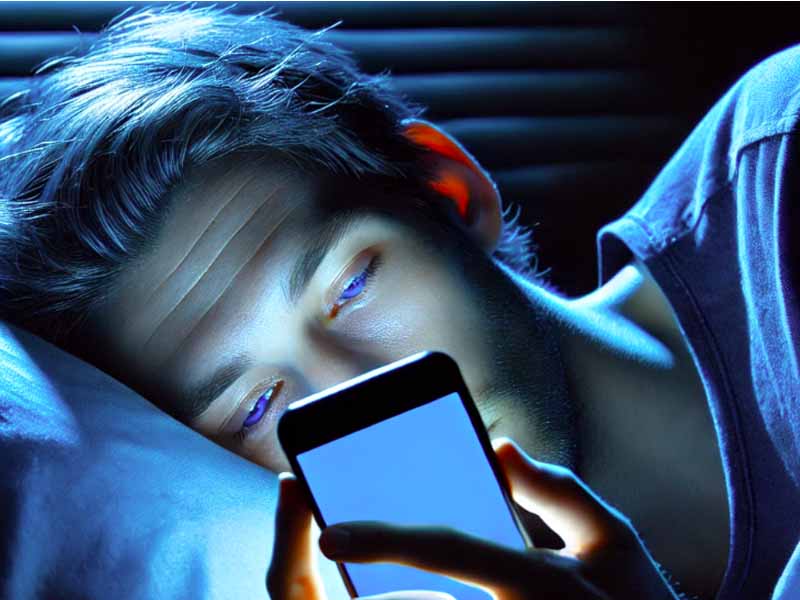
Elmsleep – You’ve captured an important point about blue light and its impact on sleep! In addition to interfering with melatonin production, blue light exposure at night can also disrupt the circadian rhythm, which is our internal body clock. This can make it more difficult for people to feel sleepy at their usual bedtime, and may lead to poor-quality sleep or trouble falling asleep in general.
A good practice is to reduce screen time in the hour or two before bed, or to use “night mode” settings that reduce light exposure on devices. Blue light-blocking glasses or filters are also becoming popular for those who need to use screens late at night.
Blue light plays a crucial role in regulating the body’s natural sleep-wake cycle, also known as the circadian rhythm. During the day, exposure to natural sunlight helps keep the body alert and awake. However, at night, the body relies on darkness to trigger the release of melatonin, the hormone responsible for sleep. When people use electronic devices before bed. The blue light emitted from screens tricks the brain into thinking it is still daytime. As a result, melatonin production is suppressed, delaying the feeling of drowsiness and making it more difficult to fall asleep.
“Website Security Mistakes Can Be Hacked in 10 Minutes”
The impact of disrupted melatonin levels goes beyond just difficulty falling asleep. Poor sleep quality can lead to a range of health issues, including increased stress, difficulty concentrating, and a weakened immune system. Researchers have linked chronic sleep deprivation to serious conditions such as heart disease and diabetes. Moreover, excessive screen time before bed can create a cycle of insomnia, where individuals struggle to sleep at night and feel fatigued throughout the day. Prompting further reliance on electronic devices.
To minimize the negative effects of blue light, experts recommend reducing screen time at least one hour before bed. Using “night mode” or blue light filters on devices can help limit exposure. But the most effective strategy is to replace screen-based activities with calming alternatives, such as reading a book, meditating, or listening to soothing music. Additionally, incorporating warm lighting in the bedroom and maintaining a consistent sleep schedule can further support a healthy sleep cycle.
As digital screens continue to be an essential part of modern life, understanding their impact on sleep is crucial. By making small adjustments to daily habits, individuals can improve their sleep quality and overall well-being. Ensuring that technology enhances rather than disrupts their lives.
“Honda C70 Street Cub, Latin America’s Iconic Ride”
